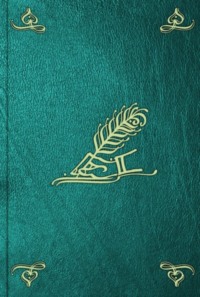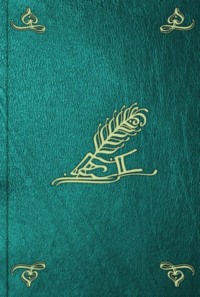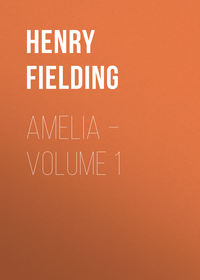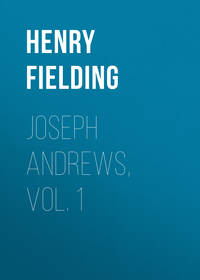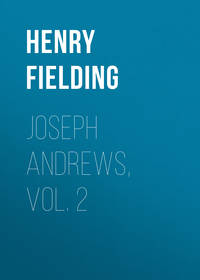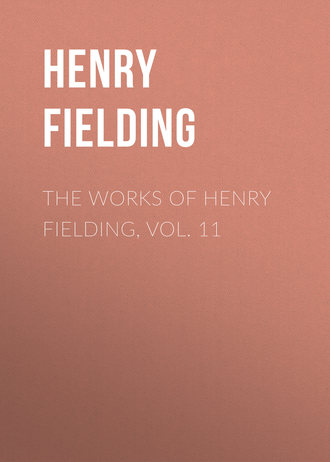 полная версия
полная версияThe Works of Henry Fielding, vol. 11

Henry Fielding
The Works of Henry Fielding, vol. 11 / A Journey From This World to the Next; and A Voyage to Lisbon
INTRODUCTION
WHEN it was determined to extend the present edition of Fielding, not merely by the addition of Jonathan Wild to the three universally popular novels, but by two volumes of Miscellanies, there could be no doubt about at least one of the contents of these latter. The Journal of a Voyage to Lisbon, if it does not rank in my estimation anywhere near to Jonathan Wild as an example of our author’s genius, is an invaluable and delightful document for his character and memory. It is indeed, as has been pointed out in the General Introduction to this series, our main source of indisputable information as to Fielding dans son naturel, and its value, so far as it goes, is of the very highest. The gentle and unaffected stoicism which the author displays under a disease which he knew well was probably, if not certainly, mortal, and which, whether mortal or not, must cause him much actual pain and discomfort of a kind more intolerable than pain itself; his affectionate care for his family; even little personal touches, less admirable, but hardly less pleasant than these, showing an Englishman’s dislike to be “done” and an Englishman’s determination to be treated with proper respect, are scarcely less noticeable and important on the biographical side than the unimpaired brilliancy of his satiric and yet kindly observation of life and character is on the side of literature.
There is, as is now well known since Mr Dobson’s separate edition of the Voyage, a little bibliographical problem about the first appearance of this Journal in 1755. The best known issue of that year is much shorter than the version inserted by Murphy and reprinted here, the passages omitted being chiefly those reflecting on the captain, &c., and so likely to seem invidious in a book published just after the author’s death, and for the benefit, as was expressly announced, of his family. But the curious thing is that there is another edition, of date so early that some argument is necessary to determine the priority, which does give these passages and is identical with the later or standard version. For satisfaction on this point, however, I must refer readers to Mr Dobson himself.
There might have been a little, but not much, doubt as to a companion piece for the Journal; for indeed, after we close this (with or without its “Fragment on Bolingbroke”), the remainder of Fielding’s work lies on a distinctly lower level of interest. It is still interesting, or it would not be given here. It still has – at least that part which here appears seems to its editor to have – interest intrinsic and “simple of itself.” But it is impossible for anybody who speaks critically to deny that we now get into the region where work is more interesting because of its authorship than it would be if its authorship were different or unknown. To put the same thing in a sharper antithesis, Fielding is interesting, first of all, because he is the author of Joseph Andrews, of Tom Jones, of Amelia, of Jonathan Wild, of the Journal. His plays, his essays, his miscellanies generally are interesting, first of all, because they were written by Fielding.
Yet of these works, the Journey from this World to the Next (which, by a grim trick of fortune, might have served as a title for the more interesting Voyage with which we have yoked it) stands clearly first both in scale and merit. It is indeed very unequal, and as the author was to leave it unfinished, it is a pity that he did not leave it unfinished much sooner than he actually did. The first ten chapters, if of a kind of satire which has now grown rather obsolete for the nonce, are of a good kind and good in their kind; the history of the metempsychoses of Julian is of a less good kind, and less good in that kind. The date of composition of the piece is not known, but it appeared in the Miscellanies of 1743, and may represent almost any period of its author’s development prior to that year. Its form was a very common form at the time, and continued to be so. I do not know that it is necessary to assign any very special origin to it, though Lucian, its chief practitioner, was evidently and almost avowedly a favourite study of Fielding’s. The Spanish romancers, whether borrowing it from Lucian or not, had been fond of it; their French followers, of whom the chief were Fontenelle and Le Sage, had carried it northwards; the English essayists had almost from the beginning continued the process of acclimatisation. Fielding therefore found it ready to his hand, though the present condition of this example would lead us to suppose that he did not find his hand quite ready to it. Still, in the actual “journey,” there are touches enough of the master – not yet quite in his stage of mastery.
It seemed particularly desirable not to close the series without some representation of the work to which Fielding gave the prime of his manhood, and from which, had he not, fortunately for English literature, been driven decidedly against his will, we had had in all probability no Joseph Andrews and pretty certainly no Tom Jones. Fielding’s periodical and dramatic work has been comparatively seldom reprinted, and has never yet been reprinted as a whole. The dramas indeed are open to two objections – the first, that they are not very “proper;” the second, and much more serious, that they do not redeem this want of propriety by the possession of any remarkable literary merit. Three (or two and part of a third) seemed to escape this double censure – the first two acts of the Author’s Farce (practically a piece to themselves, for the Puppet Show which follows is almost entirely independent); the famous burlesque of Tom Thumb, which stands between the Rehearsal and the Critic, but nearer to the former; and Pasquin, the maturest example of Fielding’s satiric work in drama. These accordingly have been selected; the rest I have read, and he who likes may read. I have read many worse things than even the worst of them, but not often worse things by so good a writer as Henry Fielding.
The next question concerned the selection of writings more miscellaneous still, so as to give in little a complete idea of Fielding’s various powers and experiments. Two difficulties beset this part of the task – want of space and the absence of anything so markedly good as absolutely to insist on inclusion. The Essay on Conversation, however, seemed pretty peremptorily to challenge a place. It is in a style which Fielding was very slow to abandon, which indeed has left strong traces even on his great novels; and if its mannerism is not now very attractive, the separate traits in it are often sharp and well-drawn. The book would not have been complete without a specimen or two of Fielding’s journalism. The Champion, his first attempt of this kind, has not been drawn upon in consequence of the extreme difficulty of fixing with absolute certainty on Fielding’s part in it. I do not know whether political prejudice interferes, more than I have usually found it interfere, with my judgement of the two Hanoverian-partisan papers of the ’45 time. But they certainly seem to me to fail in redeeming their dose of rancour and misrepresentation by any sufficient evidence of genius such as, to my taste, saves not only the party journalism in verse and prose of Swift and Canning and Praed on one side, but that of Wolcot and Moore and Sydney Smith on the other. Even the often-quoted journal of events in London under the Chevalier is overwrought and tedious. The best thing in the True Patriot seems to me to be Parson Adams’ letter describing his adventure with a young “bowe” of his day; and this I select, together with one or two numbers of the Covent Garden Journal. I have not found in this latter anything more characteristic than Murphy’s selection, though Mr Dobson, with his unfailing kindness, lent me an original and unusually complete set of the Journal itself.
It is to the same kindness that I owe the opportunity of presenting the reader with something indisputably Fielding’s and very characteristic of him, which Murphy did not print, and which has not, so far as I know, ever appeared either in a collection or a selection of Fielding’s work. After the success of David Simple, Fielding gave his sister, for whom he had already written a preface to that novel, another preface for a set of Familiar Letters between the characters of David Simple and others. This preface Murphy reprinted; but he either did not notice, or did not choose to attend to, a note towards the end of the book attributing certain of the letters to the author of the preface, the attribution being accompanied by an agreeably warm and sisterly denunciation of those who ascribed to Fielding matter unworthy of him. From these the letter which I have chosen, describing a row on the Thames, seems to me not only characteristic, but, like all this miscellaneous work, interesting no less for its weakness than for its strength. In hardly any other instance known to me can we trace so clearly the influence of a suitable medium and form on the genius of the artist. There are some writers – Dryden is perhaps the greatest of them – to whom form and medium seem almost indifferent, their all-round craftsmanship being such that they can turn any kind and every style to their purpose. There are others, of whom I think our present author is the chief, who are never really at home but in one kind. In Fielding’s case that kind was narrative of a peculiar sort, half-sentimental, half-satirical, and almost wholly sympathetic – narrative which has the singular gift of portraying the liveliest character and yet of admitting the widest digression and soliloquy.
Until comparatively late in his too short life, when he found this special path of his (and it is impossible to say whether the actual finding was in the case of Jonathan or in the case of Joseph), he did but flounder and slip. When he had found it, and was content to walk in it, he strode with as sure and steady a step as any other, even the greatest, of those who carry and hand on the torch of literature through the ages. But it is impossible to derive full satisfaction from his feats in this part of the race without some notion of his performances elsewhere; and I believe that such a notion will be supplied to the readers of his novels by the following volumes, in a very large number of cases, for the first time.
INTRODUCTION
WHETHER the ensuing pages were really the dream or vision of some very pious and holy person; or whether they were really written in the other world, and sent back to this, which is the opinion of many (though I think too much inclining to superstition); or lastly, whether, as infinitely the greatest part imagine, they were really the production of some choice inhabitant of New Bethlehem, is not necessary nor easy to determine. It will be abundantly sufficient if I give the reader an account by what means they came into my possession.
Mr Robert Powney, stationer, who dwells opposite to Catherine-street in the Strand, a very honest man and of great gravity of countenance; who, among other excellent stationary commodities, is particularly eminent for his pens, which I am abundantly bound to acknowledge, as I owe to their peculiar goodness that my manuscripts have by any means been legible: this gentleman, I say, furnished me some time since with a bundle of those pens, wrapped up with great care and caution, in a very large sheet of paper full of characters, written as it seemed in a very bad hand. Now, I have a surprising curiosity to read everything which is almost illegible; partly perhaps from the sweet remembrance of the dear Scrawls, Skrawls, or Skrales (for the word is variously spelt), which I have in my youth received from that lovely part of the creation for which I have the tenderest regard; and partly from that temper of mind which makes men set an immense value on old manuscripts so effaced, bustoes so maimed, and pictures so black that no one can tell what to make of them. I therefore perused this sheet with wonderful application, and in about a day’s time discovered that I could not understand it. I immediately repaired to Mr Powney, and inquired very eagerly whether he had not more of the same manuscript? He produced about one hundred pages, acquainting me that he had saved no more; but that the book was originally a huge folio, had been left in his garret by a gentleman who lodged there, and who had left him no other satisfaction for nine months’ lodging. He proceeded to inform me that the manuscript had been hawked about (as he phrased it) among all the booksellers, who refused to meddle; some alledged that they could not read, others that they could not understand it. Some would have it to be an atheistical book, and some that it was a libel on the government; for one or other of which reasons they all refused to print it. That it had been likewise shewn to the R – l Society, but they shook their heads, saying, there was nothing in it wonderful enough for them. That, hearing the gentleman was gone to the West-Indies, and believing it to be good for nothing else, he had used it as waste paper. He said I was welcome to what remained, and he was heartily sorry for what was missing, as I seemed to set some value on it.
I desired him much to name a price: but he would receive no consideration farther than the payment of a small bill I owed him, which at that time he said he looked on as so much money given him.
I presently communicated this manuscript to my friend parson Abraham Adams, who, after a long and careful perusal, returned it me with his opinion that there was more in it than at first appeared; that the author seemed not entirely unacquainted with the writings of Plato; but he wished he had quoted him sometimes in his margin, that I might be sure (said he) he had read him in the original: for nothing, continued the parson, is commoner than for men now-a-days to pretend to have read Greek authors, who have met with them only in translations, and cannot conjugate a verb in mi.
To deliver my own sentiments on the occasion, I think the author discovers a philosophical turn of thinking, with some little knowledge of the world, and no very inadequate value of it. There are some indeed who, from the vivacity of their temper and the happiness of their station, are willing to consider its blessings as more substantial, and the whole to be a scene of more consequence than it is here represented: but, without controverting their opinions at present, the number of wise and good men who have thought with our author are sufficient to keep him in countenance: nor can this be attended with any ill inference, since he everywhere teaches this moral: That the greatest and truest happiness which this world affords, is to be found only in the possession of goodness and virtue; a doctrine which, as it is undoubtedly true, so hath it so noble and practical a tendency, that it can never be too often or too strongly inculcated on the minds of men.
BOOK I
Chapter i
The author dies, meets with Mercury, and is by him conducted to the stage which sets out for the other worldON the first day of December 17411 I departed this life at my lodgings in Cheapside. My body had been some time dead before I was at liberty to quit it, lest it should by any accident return to life: this is an injunction imposed on all souls by the eternal law of fate, to prevent the inconveniences which would follow. As soon as the destined period was expired (being no longer than till the body is become perfectly cold and stiff) I began to move; but found myself under a difficulty of making my escape, for the mouth or door was shut, so that it was impossible for me to go out at it; and the windows, vulgarly called the eyes, were so closely pulled down by the fingers of a nurse, that I could by no means open them. At last I perceived a beam of light glimmering at the top of the house (for such I may call the body I had been inclosed in), whither ascending, I gently let myself down through a kind of chimney, and issued out at the nostrils.
No prisoner discharged from a long confinement ever tasted the sweets of liberty with a more exquisite relish than I enjoyed in this delivery from a dungeon wherein I had been detained upwards of forty years, and with much the same kind of regard I cast my eyes2 backwards upon it.
My friends and relations had all quitted the room, being all (as I plainly overheard) very loudly quarrelling below stairs about my will; there was only an old woman left above to guard the body, as I apprehend. She was in a fast sleep, occasioned, as from her savour it seemed, by a comfortable dose of gin. I had no pleasure in this company, and, therefore, as the window was wide open, I sallied forth into the open air: but, to my great astonishment, found myself unable to fly, which I had always during my habitation in the body conceived of spirits; however, I came so lightly to the ground that I did not hurt myself; and, though I had not the gift of flying (owing probably to my having neither feathers nor wings), I was capable of hopping such a prodigious way at once, that it served my turn almost as well.
I had not hopped far before I perceived a tall young gentleman in a silk waistcoat, with a wing on his left heel, a garland on his head, and a caduceus in his right hand.3 I thought I had seen this person before, but had not time to recollect where, when he called out to me and asked me how long I had been departed. I answered I was just come forth. “You must not stay here,” replied he, “unless you had been murdered: in which case, indeed, you might have been suffered to walk some time; but if you died a natural death you must set out for the other world immediately.” I desired to know the way. “O,” cried the gentleman, “I will show you to the inn whence the stage proceeds; for I am the porter. Perhaps you never heard of me – my name is Mercury.” “Sure, sir,” said I, “I have seen you at the playhouse.” Upon which he smiled, and, without satisfying me as to that point, walked directly forward, bidding me hop after him. I obeyed him, and soon found myself in Warwick-lane; where Mercury, making a full stop, pointed at a particular house, where he bad me enquire for the stage, and, wishing me a good journey, took his leave, saying he must go seek after other customers.
I arrived just as the coach was setting out, and found I had no reason for enquiry; for every person seemed to know my business the moment I appeared at the door: the coachman told me his horses were to, but that he had no place left; however, though there were already six, the passengers offered to make room for me. I thanked them, and ascended without much ceremony. We immediately began our journey, being seven in number; for, as the women wore no hoops, three of them were but equal to two men.
Perhaps, reader, thou mayest be pleased with an account of this whole equipage, as peradventure thou wilt not, while alive, see any such. The coach was made by an eminent toyman, who is well known to deal in immaterial substance, that being the matter of which it was compounded. The work was so extremely fine, that it was entirely invisible to the human eye. The horses which drew this extraordinary vehicle were all spiritual, as well as the passengers. They had, indeed, all died in the service of a certain post-master; and as for the coachman, who was a very thin piece of immaterial substance, he had the honour while alive of driving the Great Peter, or Peter the Great, in whose service his soul, as well as body, was almost starved to death.
Such was the vehicle in which I set out, and now, those who are not willing to travel on with me may, if they please, stop here; those who are, must proceed to the subsequent chapters, in which this journey is continued.
Chapter ii
In which the author first refutes some idle opinions concerning spirits, and then the passengers relate their several deathsIT is the common opinion that spirits, like owls, can see in the dark; nay, and can then most easily be perceived by others. For which reason, many persons of good understanding, to prevent being terrified with such objects, usually keep a candle burning by them, that the light may prevent their seeing. Mr Locke, in direct opposition to this, hath not doubted to assert that you may see a spirit in open daylight full as well as in the darkest night.
It was very dark when we set out from the inn, nor could we see any more than if every soul of us had been alive. We had travelled a good way before any one offered to open his mouth; indeed, most of the company were fast asleep,4 but, as I could not close my own eyes, and perceived the spirit who sat opposite to me to be likewise awake, I began to make overtures of conversation, by complaining how dark it was. “And extremely cold too,” answered my fellow-traveller; “though, I thank God, as I have no body, I feel no inconvenience from it: but you will believe, sir, that this frosty air must seem very sharp to one just issued forth out of an oven; for such was the inflamed habitation I am lately departed from.” “How did you come to your end, sir?” said I. “I was murdered, sir,” answered the gentleman. “I am surprized then,” replied I, “that you did not divert yourself by walking up and down and playing some merry tricks with the murderer.” “Oh, sir,” returned he, “I had not that privilege, I was lawfully put to death. In short, a physician set me on fire, by giving me medicines to throw out my distemper. I died of a hot regimen, as they call it, in the small-pox.”
One of the spirits at that word started up and cried out, “The small-pox! bless me! I hope I am not in company with that distemper, which I have all my life with such caution avoided, and have so happily escaped hitherto!” This fright set all the passengers who were awake into a loud laughter; and the gentleman, recollecting himself, with some confusion, and not without blushing, asked pardon, crying, “I protest I dreamt that I was alive.” “Perhaps, sir,” said I, “you died of that distemper, which therefore made so strong an impression on you.” “No, sir,” answered he, “I never had it in my life; but the continual and dreadful apprehension it kept me so long under cannot, I see, be so immediately eradicated. You must know, sir, I avoided coming to London for thirty years together, for fear of the small-pox, till the most urgent business brought me thither about five days ago. I was so dreadfully afraid of this disease that I refused the second night of my arrival to sup with a friend whose wife had recovered of it several months before, and the same evening got a surfeit by eating too many muscles, which brought me into this good company.”
“I will lay a wager,” cried the spirit who sat next him, “there is not one in the coach able to guess my distemper.” I desired the favour of him to acquaint us with it, if it was so uncommon. “Why, sir,” said he, “I died of honour.” – “Of honour, sir!” repeated I, with some surprize. “Yes, sir,” answered the spirit, “of honour, for I was killed in a duel.”
“For my part,” said a fair spirit, “I was inoculated last summer, and had the good fortune to escape with a very few marks on my face. I esteemed myself now perfectly happy, as I imagined I had no restraint to a full enjoyment of the diversions of the town; but within a few days after my coming up I caught cold by overdancing myself at a ball, and last night died of a violent fever.”
After a short silence which now ensued, the fair spirit who spoke last, it being now daylight, addressed herself to a female who sat next her, and asked her to what chance they owed the happiness of her company. She answered, she apprehended to a consumption, but the physicians were not agreed concerning her distemper, for she left two of them in a very hot dispute about it when she came out of her body. “And pray, madam,” said the same spirit to the sixth passenger, “How came you to leave the other world?” But that female spirit, screwing up her mouth, answered, she wondered at the curiosity of some people; that perhaps persons had already heard some reports of her death, which were far from being true; that, whatever was the occasion of it, she was glad at being delivered from a world in which she had no pleasure, and where there was nothing but nonsense and impertinence; particularly among her own sex, whose loose conduct she had long been entirely ashamed of.


